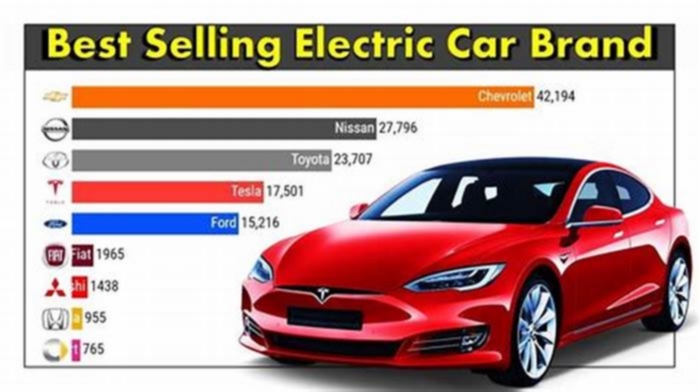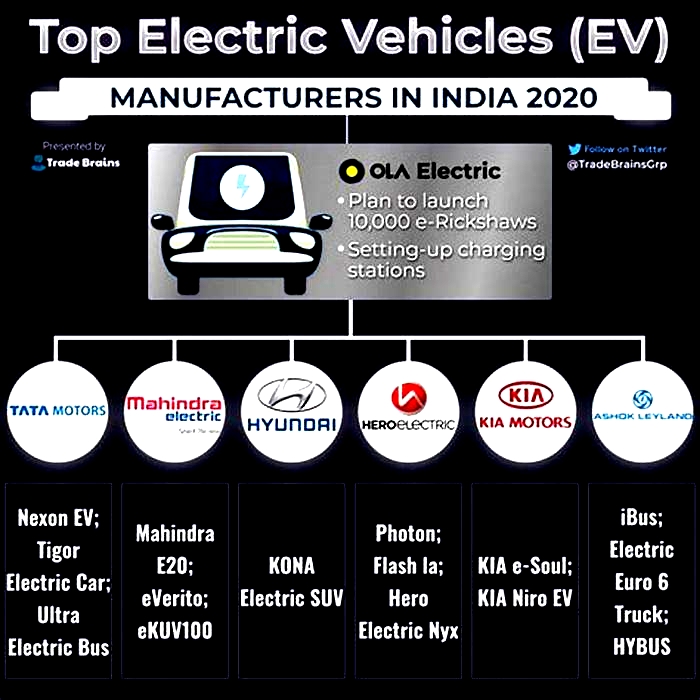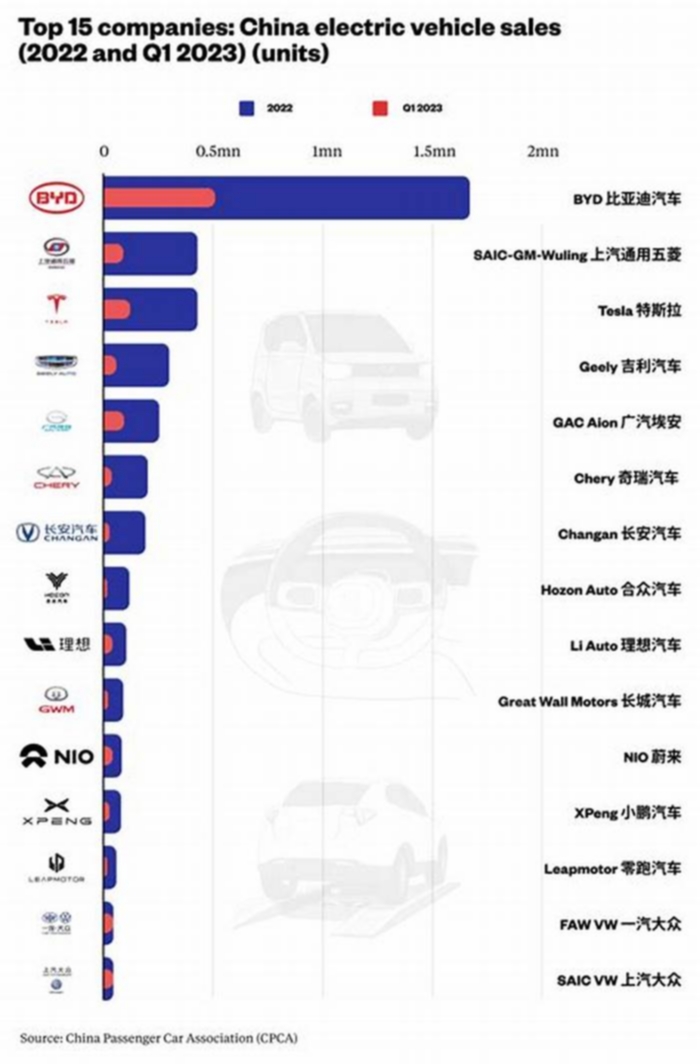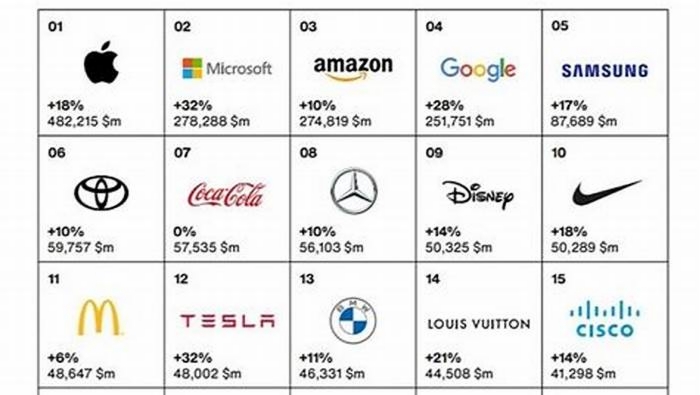Which company EV car is best

The Electric Company Car Guide
Electric company cars are steadily becoming a popular company car choice for UK businesses, its no surprise given the current salary sacrifice incentives and 2% BIK rate in the UK.In this guide to electric company cars, we review the benefits, practicalities, and tax strategies of adopting electric company cars. We explore the convenience of EV leasing options and salary sacrifice schemes, to equip businesses with a solid overview of their electric options! There are substantial tax benefits available for businesses looking to lease electric vehicles, lets look at these tax benefits in detail.
Best Rated EV Salary Sacrifice Scheme
- Competitive PricesAny brand, every model
- Early Termination ProtectionFrom day 1 (excludes resignations)
- All-Inclusive Package EV, Breakdown Cover, Insurance & Home Charger
- B Corp Certified BusinessHighlights a dedication to sustainable and ethical business practices
Are electric company cars tax free?
Electric company cars are not completely tax-free, but they do offer significant tax advantages in the UK.
One of the primary taxes associated with electric company cars is the Benefit in Kind (BIK) tax. Despite the significantly reduced BIK rate for electric vehicles just 2% for the 2023/24 tax year employees will still need to pay this tax. BIK tax is calculated based on the cars list price and the applicable BIK rate, which, even at a low percentage for EVs, is not tax free. However, the amount paid is much lower compared to BIK tax on petrol company cars.
Another tax consideration is road tax. Fully electric cars are exempt from standard road tax in the UK for now, but this exemption is set to run out in 2025, after which point EVs will have to pay road tax. Also, electric cars with a list price of over 40,000 are subject to a supplementary tax for the first five years. While this tax is lower than that for high-value petrol cars, it is still a tax that needs to be factored in.
What are the electric company car tax benefits?
Electric car company car tax rules provide several tax benefits over petrol or diesel cars:
- Low Benefit In Kind (BIK) ratesOne of the most significant tax advantages of choosing an electric company car in the UK is the low benefit in kind (BIK) rate that employees receive. BIK rates are used to calculate how much taxable benefit an employee receives from the company car. With lower BIK rates, employees benefit from reduced tax liabilities, making electric vehicles an economically attractive option for both employers and employees.Looking forward, the BIK rate for electric vehicles is expected to gradually increase as we approach the 2035 deadline to end new petrol and diesel vehicle sales in the UK. This incremental increase is part of the governments broader strategy to transition to cleaner, more sustainable modes of transportation. Despite this anticipated rise, electric company cars will continue to offer a more tax-efficient option compared to their petrol and diesel counterparts.
| UK Tax Year | BIK Rate |
| 2022/23 | 2% |
| 2023/24 | 2% |
| 2024/25 | 2% |
| 2025/26 | 3% |
| 2026/27 | 4% |
| 2027/28 | 5% |
- Claim capital allowances on new EVs and chargersA business can claim 100% first-year allowances on electric cars bought new and unused. 100% First-year allowances are also applicable to charging stations being fitted at an employees home. This means that the entire cost of the car and charger can be deducted from the profits of the company in the first year.
- Lease rental restriction Businesses leasing an electric car can usually claim 100% of the VAT back on the monthly rental cost if the car is used only for business. If it is also used for private purposes, 50% of the VAT can be claimed.
- National insurance contributions (NICs) Lower BIK rates on electric cars also mean lower Class 1A National Insurance contributions for employers.
- Vehicle Excise Duty (VED or road tax) Fully electric vehicles costing less than 40,000 are exempt from VED, also known as road tax. This exemption is set to last until 2025 after 2025 electric cars will pay road tax.
- Salary sacrifice schemes Employees can benefit from an electric car salary sacrifice scheme, where they forgo a portion of their pre-tax salary to cover the cost of an electric company car. This results in lower income tax and National Insurance contributions.
Buying an electric car through a limited company in the UK
Advantages of buying an electric car through a limited company
- Tax Benefits: Purchasing an electric car through a limited company in the UK can bring significant tax advantages. One of the primary benefits is the ability to claim 100% First Year Allowance (FYA) against taxable profits in the year of purchase if the car has CO2 emissions of 50g/km or less.
- Reduced Benefit in Kind (BIK) Rates: Employees and directors using a company-owned electric car benefit from low BIK rates, which translates to lower personal tax liability compared to petrol or diesel company cars.
- VAT Recovery: If the electric car is used solely for business purposes, the company can recover 50% of the VAT on the purchase price. The percentage may vary based on the amount of private use.
- Insurance and Maintenance Costs: These costs can be covered by the company, reducing personal expenses for the employee or director.
Considerations of buying an electric car through a limited company
- Capital Expenditure: Buying an electric car is a capital expenditure and may require a significant upfront investment.
- Depreciation: Electric cars, like all vehicles, depreciate over time, which needs to be factored into the companys financial planning.
- Changing Regulations: Tax laws and incentives can change, so staying informed about current regulations is important.
Leasing an electric car through a limited company in the UK
Advantages of leasing an electric car through a limited company
- Tax-Efficient: Leasing an electric car through a limited company can be more tax-efficient than purchasing. Lease payments are an allowable expense that can be deducted from the companys taxable profits.
- No Large Capital Outlay: Leasing eliminates the need for a significant initial investment, making it easier to manage cash flow.
- Fixed Monthly Costs: Leasing provides predictability in expenses with fixed monthly payments, which usually include maintenance and servicing.
- Benefit in Kind (BIK) Advantages: As with purchasing, leased electric cars benefit from lower BIK rates for employees.
- VAT Benefits: For VAT-registered businesses, a portion of the VAT on lease payments can be reclaimed. This is usually 50% for cars with personal use.
Considerations of leasing an electric car through a limited company
- Contract Terms: Leases come with mileage limits and conditions regarding vehicle condition on return, which can incur additional costs if not adhered to.
- Long-Term Cost: Over time, leasing can be more expensive than buying outright due to continuous payments.
- Vehicle Ownership: At the end of the lease, the company doesnt own the vehicle, unless a purchase option is exercised (if available).
Both options present unique advantages and considerations, and the best choice depends on the specific financial circumstances and needs of the limited company.
Can I claim for charging my company car at home?
Yes, you can claim to charge your company car at home in the UK, but some specific conditions and rules apply.
- Electricity Costs as a Business Expense If youre using your personal electricity supply to charge a company electric car, the cost of this electricity can be considered a business expense.
- Advisory Electricity Rate (AER) HM Revenue & Customs (HMRC) provides an Advisory Electricity Rate for electric vehicles, which employers can use to reimburse employees for the cost of business-related charging. This rate is designed to cover the cost of electricity used, wear and tear, and insurance.
- Record Keeping Its important to keep accurate records of the business mileage to claim these expenses correctly. Only the electricity used for business travel can be claimed, not for personal use.
- Reimbursement vs. Allowance Your employer can either reimburse you for the actual cost of electricity used for business (with evidence such as receipts or detailed calculations) or use the AER to pay a mileage allowance.
- No Benefit in Kind (BIK) for Home Charging If your employer reimburses you for business mileage using the AER or pays for the installation of a charging point at your home, this is not considered a taxable benefit in kind.
- VAT Claims If your employer is VAT registered, they may also be able to claim back the VAT associated with the business proportion of the electricity used for charging the vehicle.
The rules on company car tax are complex and you should agree to the workplace approach in-house before you claim.

What are the recent company car tax changes?
The most recent change in the company car tax rules involves the Benefit-In-Kind (BIK) allowances, a significant factor that determines the company car tax liability for both the employer and the employee.
The BIK tax rate, which is the percentage of the cars value that is taxable, is set to increase gradually each year from the tax year 2025/26 to 2027/28. This annual increment is fixed at 1%. Therefore, by the end of the tax year 2027/28, the BIK rate for electric vehicles will be 5%, a rise of 3% from the 2024/25 rate of 2%.
What this means is that if youre driving a company EV, you will be taxed on 5% of its value as a benefit, compared to 2% in 2024/25.
Despite this increase, its crucial to remember that EVs are still considerably more tax-efficient than petrol or diesel company cars.
What are the Capital allowances for electric cars?
Capital allowances let businesses write off the costs of tangible capital assets, like machinery or vehicles, against their taxable income.
In the UK, electric cars are eligible for a 100% First Year Allowance (FYA). This means businesses can deduct the full cost of the electric car from their pre-tax profits in the year that they purchase it.
The 100% FYA is very beneficial for businesses because it can mean a significant tax saving in the year of purchase, helping to offset the often higher purchase price of new electric vehicles compared to petrol or diesel cars.
The 100% FYAs are available for new electric cars. For used electric cars, businesses can claim a main rate writing down allowance of 18% or a special rate writing down allowance of 6% depending on the CO2 emission level of the vehicle.
Is there Capital gains tax on cars?
For the average EV owner, there is no capital gains tax (CGT) due when you sell a car because vehicles are usually classed as wasting assets. This term refers to assets that have a predictable life of 50 years or less, according to UK tax law.
However, if the car was used for business purposes and was part of the businesss assets then CGT will be due. Additionally, if you dispose of the car in a manner that makes you a profit, you may be subject to capital gains or corporation tax. For instance, if your car is traded in for another and the value received in the trade-in surpasses the initial purchase price of the vehicle, you might have a tax obligation.
Can you claim back vehicle road (VED) tax on EVs?
Road Tax (VED) is not typically a cost that businesses can recover or claim back. Vehicle Excise Duty (VED) is generally considered a running cost associated with a vehicle and isnt deductible against corporation tax.Currently, there is no Road Tax (VED) on Electric vehicles. However, this is to change in April 2025, when this changes you will be able to claim Corporation Tax Relief on this cost for company cars.
Can you pay for an electric company car through a salary sacrifice?
It is possible to pay for an Electric company car through the Electric Vehicle Salary Sacrifice Scheme. This is a common and often beneficial arrangement for both employees and employers in the UK.
In a salary sacrifice scheme, an employee agrees to give up a portion of their pre-tax salary in exchange for a non-cash benefit, such as an electric company car. The amount of salary sacrificed is often equivalent to the cost of leasing the vehicle.
This setup can have 3 main advantages:
- Tax Efficiency Since the salary sacrifice comes out of pre-tax salary, it reduces the employees taxable income. This can result in lower income tax and National Insurance contributions for the employee and lower National Insurance contributions for the employer.
- Electric Vehicles and Benefit-In-Kind Electric vehicles have much lower Benefit-In-Kind (BIK) tax rates compared to traditional petrol or diesel cars. This makes them particularly attractive for salary sacrifice schemes, as the tax savings can be substantial.
- Environmental impact Salary sacrifice schemes that promote the use of electric vehicles align with environmental sustainability efforts by incentivising cleaner, greener transportation options.
However, its important to bear in mind that salary sacrifice schemes can have implications for things like loan applications or pension contributions, as they effectively reduce your income.More> How to get a car through salary sacrifice
Is there VAT on company car tax?
Company car tax, also known as Benefit-in-Kind (BIK), is not subject to Value Added Tax (VAT) because its not a sale of goods or services, which is what VAT is designed to tax. VAT is a consumption tax that is added to the price of goods and services that consumers purchase.
BIK, on the other hand, is a type of income tax. Its a tax on the value of benefits that an employee receives in kind as a result of their employment, over and above their cash salary.
Corporation tax relief on electric cars
In the UK, businesses that run electric company cars can also benefit significantly from corporation tax relief.
Corporation tax relief for electric cars is available through capital allowances. When a business purchases an electric vehicle for company use, it can claim a capital allowance, which reduces the companys taxable profit and consequently its corporation tax bill.
EVs benefit from a 100% First Year Allowance (FYA). Companies can claim 100% of the cost of the car against their profits in the year of purchase. This means that if a company buys an electric car, it can deduct the full cost of the car from its pre-tax profits, substantially reducing its corporation tax liability in that year.
If the electric vehicle is not new or does not qualify for the FYA for any other reason, businesses can still claim a Writing Down Allowance (WDA). This allows a portion of the vehicles cost to be deducted from the companys profits each year, spreading the tax relief over several years.
Businesses leasing electric cars can also gain tax benefits. Lease payments for electric vehicles are often fully deductible as a business expense, further reducing the companys taxable profit. This makes leasing an attractive option for businesses not looking to purchase vehicles outright.
What are the tax differences between leasing an EV VS purchasing an EV?
The tax implications of leasing versus purchasing an electric vehicle vary depending on whether youre an individual or a business:
Leasing an EV
- For BusinessesIf a business leases an EV, the lease payments are generally tax-deductible as a business expense. This effectively lowers the businesss taxable income and, by extension, its corporation tax bill. If the EV is provided as a company car for an employee, the employee will have to pay Benefit-In-Kind (BIK) tax, but the BIK rates for EVs are considerably lower than those for petrol or diesel cars.
- For IndividualsIf an individual leases an EV, they cannot claim a tax deduction for the lease payments as these are considered personal expenses. However, individuals who receive an EV as a company car will benefit from lower BIK rates.
Purchasing an EV
- For Businesses If a business purchases an EV, it can typically claim a 100% first-year allowance (FYA) for vehicles with low CO2 emissions, which allows them to deduct the full cost of the EV from their profits before tax in the year they make the purchase. However, this is subject to certain conditions and the car must meet the qualifying low-emission criteria.
- For IndividualsIndividuals who purchase an EV cant claim a tax deduction for the purchase price. However, if the EV is used as a company car, they will benefit from lower BIK rates.
Can I claim mileage on my leased electric car?
You can claim mileage on your leased electric car, assuming that the travel is business-related. The rate at which you can claim business mileage is set by the HMRC:
- 45p for the first 10,000 miles
- 25p thereafter
If a business is reimbursing an employee for business miles in a company electric car, the current rate is 9p per mile. Heres our full guidance on claiming HMRC mileage in an electric car.
It is not possible to claim for travel between home and a regular work location this is considered commuting and is not claimable. You can claim for travel to a temporary work location or for other business-related journeys.
If the company pays you less than the HMRC-approved amount, you can claim the difference on your tax return. If your company pays you more than the HMRC rate, the additional amount is considered income and may be taxable.
What are the most tax-efficient company cars?
The most tax-efficient company cars are without a doubt electric cars. This is because the UK government has implemented policies to encourage the adoption of EVs as part of their strategy to reduce greenhouse gas emissions.
The tax efficiency of company cars is determined by their Benefit-In-Kind (BIK) rate, which is how company cars are taxed in the UK. The BIK rate is a percentage of the cars list price that is added to your income and taxed at your marginal rate. The rate is determined by the cars CO2 emissions and its zero-emission mileage (if its a hybrid).
The BIK rate for pure electric vehicles is 2%, it is set to remain at this level until 2024-2025. This is significantly lower than the BIK rates for petrol and diesel cars, which can be as high as 37%.
Plug-in hybrids can also have relatively low BIK rates, depending on their electric range. The longer the range, the lower the BIK rate.
What is the cost of an electric company car compared to a petrol company car?
EVs cost more to buy or lease than a petrol equivalent, however, with the tax and fuel-saving benefits available to EV owners the cost comes down significantly.To compare the cost between an electric company car and a petrol company car, you need to look at a range of factors:
1. Initial purchase or lease cost Electric cars tend to have a higher upfront cost than petrol cars, although the gap is closing as technology advances and economies of scale come into play. However, when considering a company car, this cost may be spread out in the form of a lease or finance payments, reducing the initial financial impact.
2. Fuel VS Charging costs EVs are usually cheaper to fuel than petrol cars. The cost of electricity is generally lower than the cost of petrol, and this can result in significant savings over time.
3. Tax savings The Benefit-In-Kind (BIK) tax for EVs is lower than for petrol cars in the UK. Making EVs more cost-effective from a tax perspective.
4. Maintenance costs EVs typically have lower maintenance costs than petrol cars. They have fewer moving parts and dont require oil changes, which can result in lower servicing costs over the vehicles life.
5. Residual value The residual value of EVs can be somewhat uncertain, as the used market for these vehicles is still developing. However, demand for used EVs is growing, and this may help to support their residual values in the future.
Overall, while the upfront cost of an electric company car might be higher, the total cost of ownership over time can be lower than a petrol car when you factor in lower fuel, tax, and maintenance costs. This is evidenced in a study by the International Council on Clean Transportation in the US. They found that EVs can have a lower total cost of ownership than petrol vehicles, even when the purchase price is higher.
How long do electric company cars take to charge?
Charging time for electric vehicles (EVs) in the UK varies depending on the size of the battery, the speed of the charging point, and the current level of charge in the battery. Here are the main types of charging in the UK and their usual timeframes:
- Standard Home Charging (2.3 kW)This type of charging uses a standard household electrical socket using a charger known as a granny charger and can take 8-12 hours to fully charge a typical EV. It is the slowest method and most suitable for overnight charging.
- Home or Public Fast Charging (7-22 kW)These charging points, found in homes with a dedicated EV home charger installed, at workplaces, and in public places, can charge an EV in 3-4 hours. The exact speed will depend on the chargers power output and the cars onboard charger capacity.
- Public Rapid Charging (50-150 kW)These are usually found at motorway service stations and some other public locations. They can charge an EV to around 80% in 20-60 minutes, depending on the power output of the charger and the EVs charging capability.
- Ultra-Rapid Charging (150 kW and above)These are the fastest chargers and are less common but increasing in number. They can potentially charge an EV to 80% in 20 minutes or less, but the vehicle needs to support such high-speed charging.
Charging times can vary significantly depending on the specific electric vehicle and charger used, as well as the condition of the battery.
How far can electric company cars travel on a single charge?
How far an electric car travels on a single charge varies greatly between the different models of EVs, as well as a few other considerations. Most modern EVs will be able to travel for between 100 and 300 miles on a single charge, but there are some EVs that can go further even up to 500 miles.Several factors impact how far an EV can drive on a single charge:Battery CapacityThe size (capacity) of an EV battery has the biggest impact on the range, the larger the battery the longer a car will drive for.How the EV is drivenDriving at high speed or riding the brake will decrease range, as will using features like air conditioning, heated seats or heated steering wheels.TemperatureThe performance of an EV battery is impacted by the outside temperature. A cold battery will mean more energy is used to heat the inside of the car, which leaves less energy for the range of the vehicle. Hot temperatures will degrade the battery over time, also decreasing the overall range.How old is the battery?Over time, the EV battery will degrade and the distance a car can travel on a full charge will decrease.
How can companies provide charging facilities at work?
If you are providing staff with electric company cars then it makes sense to invest in charging stations in the company car park. Its a fantastic benefit to offer staff who may be struggling with the rising cost of energy at home.Businesses could look to install renewable energy sources, such as solar panels. This demonstrates a corporate responsibility towards sustainability a facet that will appeal to employees and potential new employees when its time to recruit new staff.There are several grants available to UK businesses looking to reduce the cost of installing workplace chargers. The EV infrastructure grant for staff and fleets provides funding to companies who do not have the infrastructure in place to enable chargepoints to be installed.The Workplace Charging Scheme provides funding for the actual EV chargers, a business can get a 350 discount on the cost of a new EV charging unit.

What are the potential negatives of an electric company car?
There are plenty of benefits to using EVs as company cars, lets consider the potential negatives.Battery maintenanceBatteries will degrade and can be expensive to replace, if you are leasing a company car then this is less of a concern.Limited modelsThe selection of EVs on the market in the UK is continuing to grow, but there are fewer options than in the petrol and diesel range.Range suitabilityCompany cars may be required to cover long distances as staff use them to visit clients or suppliers. If the daily distances exceed the range then it is less convenient to rely on public chargers than petrol stations, as there are far fewer EV chargers.
The final word on electric company cars
Electric company cars are a great option for UK businesses, mainly due to their considerable financial, environmental, and operational benefits. Driven by supportive government initiatives, technological advancements, and a growing recognition of environmental responsibilities, businesses are actively transitioning to electric fleets.
Firstly, EVs offer significant tax benefits. The Benefit-In-Kind (BIK) rates for EVs are lower than for petrol or diesel cars, making EVs more cost-effective from a tax perspective. Additionally, businesses can take advantage of capital allowances, potentially achieving 100% first-year allowances for zero-emission cars, while leased vehicles can offer corporation tax relief.
The cost of operating EVs is also typically lower compared to petrol or diesel counterparts. This is due to lower fuel costs, reduced maintenance needs, and a growing charging infrastructure. Furthermore, employees using EVs can claim mileage expenses, and businesses can potentially recoup VAT on these claims.
However, the shift to EVs does come with new considerations. Charging times, while improving, can still be longer than traditional refuelling times, and businesses may need to invest in charging infrastructure at workplaces. Additionally, the upfront costs of EVs are typically higher, although this gap is narrowing and can be mitigated through leasing or salary sacrifice schemes.
Overall, as technology improves and government support continues, the case for electric company cars in the UK is becoming increasingly compelling. Businesses willing to embrace this transition will be well-placed to benefit from cost savings, enhanced sustainability, and improved employee satisfaction, while also contributing to the broader national goal of achieving net-zero emissions.
Best Rated EV Salary Sacrifice Scheme
- Competitive PricesAny brand, every model
- Early Termination ProtectionFrom day 1 (excludes resignations)
- All-Inclusive Package EV, Breakdown Cover, Insurance & Home Charger
- B Corp Certified BusinessHighlights a dedication to sustainable and ethical business practices
Electric Car Guide does not provide tax advice. This article is for informational purposes only and is accurate at the time of writing. Be aware that UK tax legislation may change and you should consult your accountant if you need advice specific to your personal circumstance.
Ready to dive even deeper...
Mark Tubby
Mark Tubby is a qualified accountant from Steve Pye & Co Chartered Certified Accountants.
Mark has over 25 years of experience advising businesses on company tax legislation and is the Electric Car Guides contributor for all things tax.
You do not have any posts.
John Ellmore
John is the Editor and Spokesperson for Electric Car Guide.
With over 20 years of writing experience, he has written for titles such as City AM, FE News and NerdWallet.com, covering various automotive and personal finance topics.
Johns market commentary has been covered by the likes of The Express, The Independent, Yahoo Finance and The Evening Standard.




